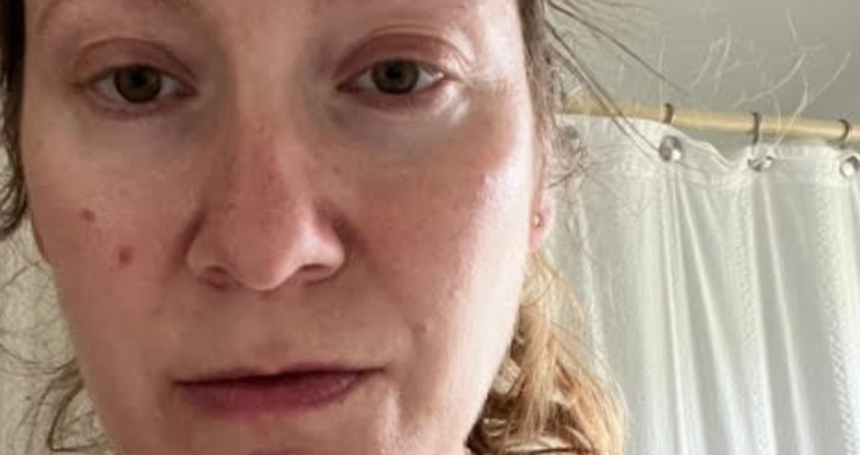[ad_1]
The reporter’s son enjoys the song “Vampire” by Olivia Rodrigo. In October, the ten-year-old made himself a vampire costume for Halloween. However, the reporter’s personal experience relating to vampires is much different.
Due to a disease called lupus, sunlight triggers rashes on her chest, chin, cheeks, and nose. She also starts to shiver and becomes weak in her legs when exposed to sunlight, sometimes even unable to move. It also causes swelling in one of her eyes, and all these reactions can’t be completely stopped with a hat or SPF lotions.
Around the beginning of the summer, she hoped the rashes were from heat, as she remembered experiencing during childhood trips to the beach. When the sweating began, she assumed she was entering menopause, being already 43 years old.
However, the painful symptoms started spreading from her fingers to the rest of her body, preventing her from doing daily tasks such as reading a book. A mental fog soon ensued, causing difficulties in reading. Other symptoms included crackling joints and itching skin. She felt unsteady when walking and found it difficult to write emails due to stiffness in the fingers.
Autoimmune diseases are considered a betrayal by the body, with the immune system attacking the body’s healthy cells and tissue. This leads to the body functioning unpredictably, resulting in regular discomfort.
The reporter started feeling more like a vampire over time, hiding from the sun during the day and being active at night, with her paleness and feeling of anemia increasing. Both lupus and porphyria, diseases known for intensifying under sun exposure, are often associated with vampires.
After several months of illness, the reporter took down every mirror in her house, unable to look at her reflection. She noticed her hair thinning rapidly and rashes appearing on her face, and asked her husband if her appearance had changed, to which he responded it was the same.
Eventually, the edges of her tongue became indented, shocking her son when she showed him. She felt alien, like a mother-monster.
Despite her successful career as a professor, the sudden dependence on others made her to liken herself to a vampire. She spent her days going to the emergency room and seeing medical specialists who couldn’t understand her symptoms. A diagnosis was difficult to come by, with one ER physician suggesting she get more sleep and a nurse suggesting an infection.
Thoughts of despair increased when she was finally diagnosed with lupus, a disease that doesn’t have a cure and whose symptoms can attack virtually all bodily organs. The reporter felt like she was hovering between life and death.
After relentless self-advocacy and navigating through the complex healthcare system during her medical leave, she managed to get a diagnosis in under six months. Many people, however, have to live in uncertainty for several years due to the disease’s difficulty in diagnosis and treatment.
Having joined an online support group primarily for women, she noticed that many lupus patients relate their condition to feeling vampire-like. Their conversations often referred to their feelings of isolation and being overlooked, both by doctors and the scientific community.
The author feels her vampire is fragile, unlike those depicted in Anne Rice’s novels, who are portrayed as sensual and immortal.
She recounts an incident from two summers ago where she and her son caught a caterpillar and tried to grow a butterfly. Two weeks later, they found a monarch butterfly had formed. They were amazed at its transformation and resilience, keeping the butterfly in an outdoor jar. However, it refused to move for hours, almost in shock at its new form.
As she gets accustomed to living with lupus, she feels less like a vampire and more like the stunned butterfly. Her progress since June hasn’t been linear, but she remains hopeful, accepting the unpredictable patterns of lupus and mourning her life before the illness. Her son made a remark on how they were both like vampires, both of them afraid of the sun but her cape is invisible.
The reporter, Jennifer Spitzer, an associate professor of literature at Ithaca College, is currently writing a memoir on grief, illness, and Virginia Woolf.
[ad_2]









